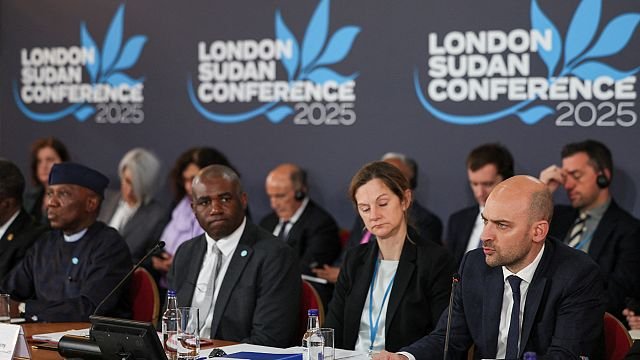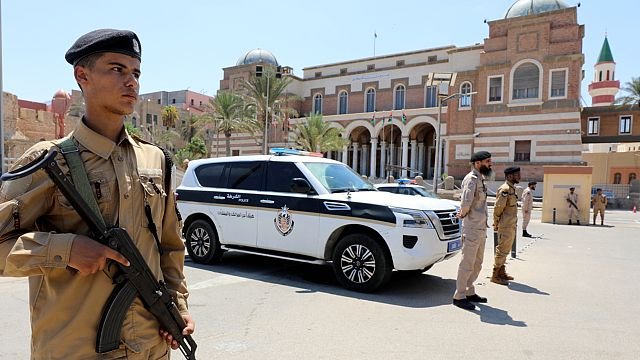Diplomats and aid officials from around the world met Tuesday in London to try to ease the suffering from the 2-year-old war in Sudan, a conflict that has killed tens of thousands of people, displaced 14 million and pushed large parts of the country into famine.
The African Union, which co-hosted the one-day conference with Britain, France, Germany and the European Union, called for an “immediate cessation of hostilities.”
But UK Foreign Secretary David Lammy acknowledged that achieving peace would take time, renewed international effort and “patient diplomacy.”
The main aim of the conference was not to negotiate peace, but to relieve what the United Nations calls the world’s worst humanitarian crisis.
Attendees included officials from Western nations, international institutions and neighboring countries – but no one from Sudan. Neither the Sudanese military nor the rival paramilitary it is fighting has been invited.
Lammy told delegates that “many have given up on Sudan,” concluding that continued conflict is inevitable. He said a “lack of political will” is the biggest obstacle to peace.
“We have got to persuade the warring parties to protect civilians, to let aid in and across the country and to put peace first,” Lammy said.
Two years of hunger, fighting and destruction
Sudan plunged into war on April 15, 2023, after simmering tensions between the Sudanese military and a paramilitary organization known as the Rapid Support Forces. Fighting broke out in the capital, Khartoum, and spread across the country, killing at least 20,000 people – though the number is likely far higher.
Last month the Sudanese military regained control over Khartoum, a major symbolic victory in the war. But the RSF still controls most of the western region of Darfur and some other areas.
More than 300 civilians were killed in a burst of intense fighting in Darfur on Friday and Saturday, according to the U.N.
The war has driven parts of the country into famine and pushed more than 14 million people from their homes, with more than 3 million fleeing the country, to neighboring countries including Chad and Egypt. Both sides in the war have been accused of committing war crimes.
The World Food Program says nearly 25 million people — half of Sudan’s population — face extreme hunger.
Aid agency Oxfam said the humanitarian catastrophe risks becoming a regional crisis, with fighting spilling into neighboring countries. It said that in South Sudan, itself wracked by recent war, “the arrival of people fleeing Sudan’s conflict has put more pressure on already scarce resources, which is deepening local tensions and threatening the fragile peace.”











![Oligui Nguema: A breakthrough or continuity for Gabon? [Business Africa]](https://lastnewshub.com/wp-content/uploads/2025/04/94690-oligui-nguema-a-breakthrough-or-continuity-for-gabon-business-africa.jpg)